Are You Prepared for a Medical Emergency?
Are you prepared for a medical emergency? You may have health insurance and a first aid kit, but do you have the important information you need to help you recognize the signs of a medical emergency? Regarding your overall health, you may try to eat well, exercise regularly, and make it a habit to get plenty of rest at night. But even when our bodies seem to be in good physical shape, that still doesn’t count out the possibility of you having a medical emergency anytime.
Perhaps you’ve heard some of the horror stories of younger people collapsing on the ball field or basketball court? What would you do if that were your son or daughter, or maybe even one of your students? Would you know a few of the basics to help keep them alive until the paramedics or other first responders arrived?
It doesn’t take a natural disaster in your area to cause you or a family member to experience a medical-related incident. Depending on your personal medical history, you may be better prepared than others for a life-threatening situation where you need emergency medical services. You may have gathered some health information regarding your current medical conditions. You may have been given some advance directive steps by your doctor(s) so you know what to expect and how to respond. That may include when to visit an urgent care facility or make an emergency room visit.
Sadly, many people may not have the information available to make the critical decisions necessary. Let’s discuss some issues you need to acquaint yourself with, just in case you need medical care that only emergency personnel can provide. That way you’ll have additional information to help you do some of the emergency planning you should be doing BEFORE the emergency hits.
Are You Prepared for a Medical Emergency?
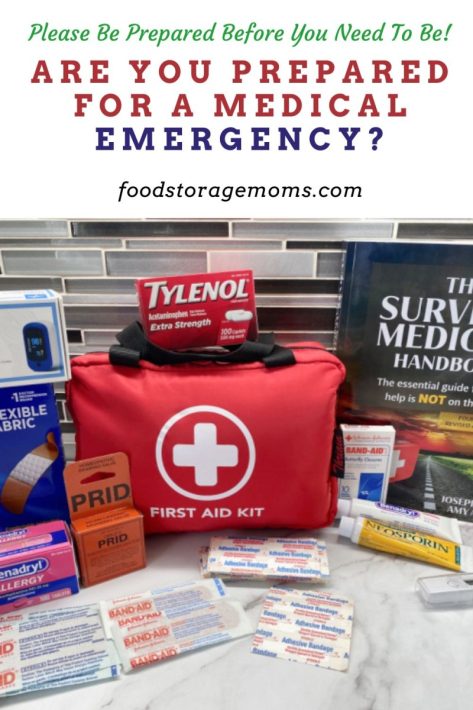
In Case of a Medical Emergency
A medical emergency is a traumatic event that can happen entirely out of the blue. Instead of cowering back in fear in those moments, choose to rise to the occasion by being well prepared beforehand. I have a few beneficial tips that may help you save a life one day, and I don’t mean that lightly. Keep reading to find out what are some simple, yet effective ways to be prepared for any medical emergency.
Create a List of Medical Information for Each Family Member and a Consent Form
This one may not seem that important, but by you having each family member’s medical information available you can alert arriving emergency responders with critical facts needed. The physicians at the hospital or clinic will need to understand some medical history. That could include previous illnesses, medications being taken, past surgeries, and any allergies to possible prescriptions administered. Having a list of your doctors’ names, phone numbers, and other contact information can prove very important in case they need to reach out to them.
This information will allow them to administer help much more quickly and effectively. And by you giving your consent by documentation ahead of time, you have given them authorization for treatment. That may include emergency surgery if necessary when their legal guardian isn’t present. What To Do When There Is No Medical Help or the new 4th Edition The Survival Medicine Handbook
Learn CPR (Cardiopulmonary Resuscitation)
Are you aware that about 70% of all heart attacks take place in the home? And what’s worse, over half of Americans feel completely powerless and wouldn’t know what to do in those situations. That doesn’t have to be you! Organizations like the American Red Cross, and the American Heart Association always offer introductory CPR courses that can be set up over the phone. Besides learning CPR, you’ll also be required to learn how to perform the Heimlich on a person that’s choking, as well as other life-saving practices.
Learn About What are Some Classic Medical Emergency Indicators
A lot of the time, there are a few warning signs that a person is experiencing, or is about to have a medical emergency like a seizure or a stroke. But if you’re aware of these indicators, you could possibly prevent, or at the very least, lessen the severity of a medical emergency. You’d also be able to call 911 for help sooner because you realized the signs before anyone else did. The following are several classic indicators of a medical emergency:
- Difficulty breathing
- Uncontrolled bleeding
- pain in the chest or abdominal regions for more than two minutes
- vomiting or coughing up blood
- Severe diarrhea or vomiting
- confusion
- a quick change in behavior
- sudden dizziness or blurred vision
- slurred speech
- suicidal thoughts
Knowing how to help someone get medical help and when to visit an emergency room (ER) or emergency department (ED) is one of the smartest things you can do. Until the healthcare professionals get there, someone is depending on you to make an emergency call and execute an emergency response plan. Having medical professionals make the right diagnosis as soon as possible could certainly save someone’s life.
Keep a First-Aid Kit in Your Home and in Your Vehicle in Case of Emergency
In several emergency cases, you’ll need a complete first-aid kit with you in order for you to be an effective medical treatment provider until the professionals get there and can take over. The treatment might be as minor as a scratch or rash, or more serious as a puncture wound. Either way, you need to be prepared as best as possible.
Not only should you keep one in your home, but you should also consider keeping one in each of your vehicles. That way you always have one with you wherever you go. Your first-aid kit should include items such as:
- bandages
- adhesives
- superglue
- antibacterial ointment
- scissors
- tourniquet
- gloves
- CPR mask or barrier device
- Tylenol
- Personal medications for any family member that may need them
- Benadryl for allergic reactions
- Poison Control phone number: (800) 222-1222, please check to see if you have a local number for your area.
If you’re still looking for a more thorough list of all the medical items that you should consider having in your first-aid kit, here’s a list that’s provided by The American Red Cross.
Other Last-Minute Medical Attention Tips
Before I wrap this up, there are a few other helpful tips that may prove useful to you one day. Some may even seem a bit petty, but hey, it’s better to be safe than sorry.
- Keep telephone numbers of hospitals and emergency room facilities with you.
- Having in your wallet or purse your insurance cards with health insurance companies’ names, policy numbers, contact information, co-pays, and some coverage information is very helpful.
- Make sure that all family members know how to call 911.
- Keep all significant medical information accessible, like in a file or folder.
- Know your blood type.
- Make sure that all family members know the location of first-aid kits and/or supplies.
- In a medical emergency, if you don’t have access to a phone, be familiar with your surroundings and look for help from anyone nearby.
- Try and remain calm. Panic is not going to make anything better. Staying composed will allow you to think straight and act fast in case of an emergency.
- Don’t forget to add the In Case of Emergency (ICE) contact information in your phone.
Medical problems can happen in the blink of an eye, the big question is are you prepared for a medical emergency? Remember that emergencies can happen anywhere, at any time! It could take a while for emergency responders be arrive on the scene, so try to be as prepared as possible to provide aid as needed.
More Emergency Tips
- What Should You Do in a Chemical Emergency?
- How to Handle an Emergency: Kid Edition
- 25 Emergency Items You Need
Final Word
Medical emergencies can be extremely scary and take a toll on you and your family, but with the right preparation and planning, you can handle them with confidence. Just remember to stay informed, always have a first-aid kit available at home and in your vehicle, and learn basic CPR techniques. Keep a list of medical information for each family member. Should a medical emergency ever happen to you or one of your loved ones, you’ll be glad you did!
In case of an emergency situation, you should know how to deal with many medical situations and emergency services. It’s vital that you have the right emergency contacts in place and that you know how to reach the emergency department. Medical treatment can be something that needs to be done right away, which is why it’s vital that you understand the importance of emergency care. May God Bless this world, Linda

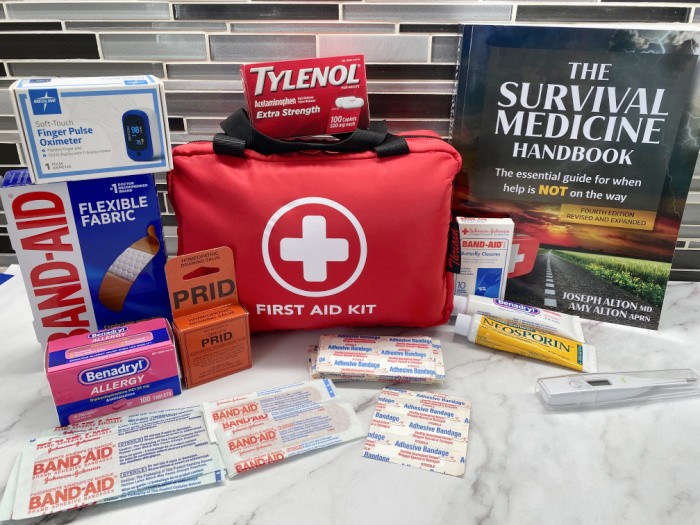


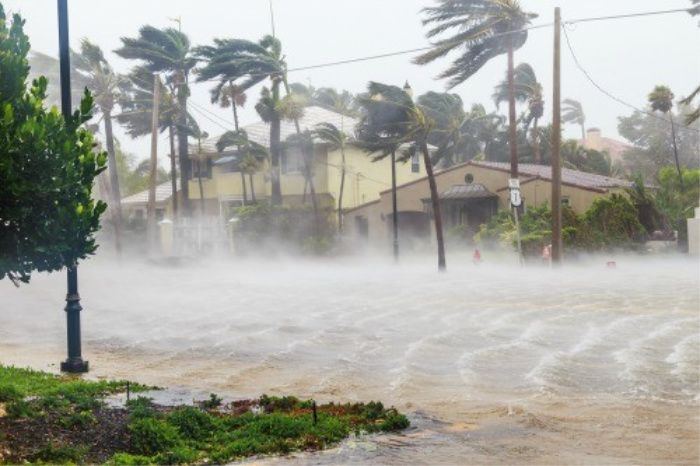
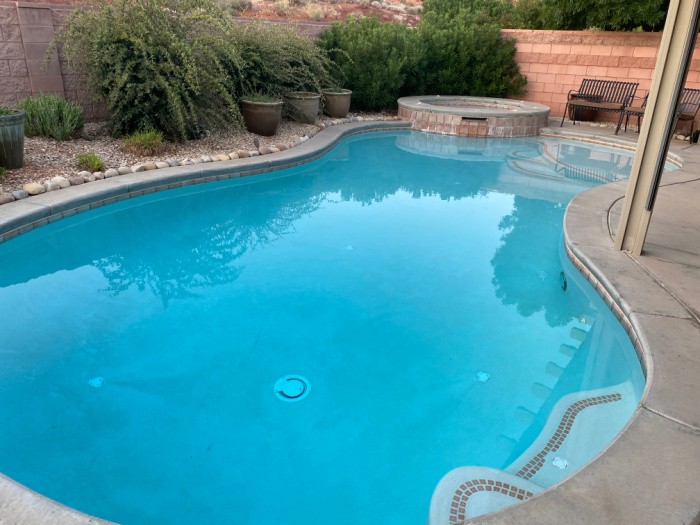

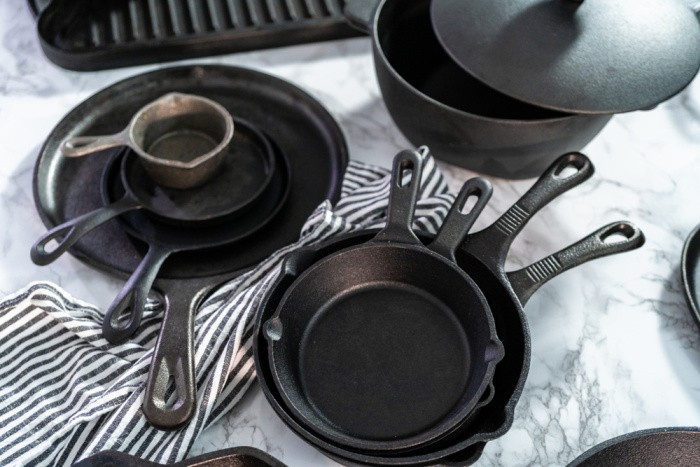














Couple of quick thoughts.
If you are going to place a tourniquet, you better have a Sharpie to write down on the patient’s body next to the tourniquet, the exact time the tourniquet was placed.
Tylenol is only a pain reliever; it can’t save a life. Aspirin, on the other hand, can help keep the blood circulating in case of a heart attack. Chewable baby aspirin.
Benadryl can also be critical in buying time in the case of a severe allergic response. One of the campers at our girls camp one summer suddenly developed a severe allergy to sunflower seeds. Our nurse and the EMT attending to her had the epi-pens ready if they were needed, but were able to avoid using them by giving her Benadryl. Chewable tablets get into the bloodstream faster. At home, keep children’s liquid benadryl on hand.
Lots more information, including the Master Medical Shopping List, for preparing for medical issues is available at the Prep School Daily blog.
Hi Jennifer, great comments as always. Please send me a link to share. Linda
Hi Linda, I just emailed it this morning instead of replying here. Oops!
https://prepschooldaily.blogspot.com/2020/02/the-master-medical-shopping-list.html
Hi Jennifer, oh I wanted it here, everyone will see it, thank you! Linda
Linda,
What an excellent post. I took a CERT class many years ago and probably need to do so again to refresh my memory. I do know the Heimlich maneuver. But I’ve never had to stitch any wound up, so I need to learn how to do that. We have a stockpile of our medications, and quite a bit of basic first aid stuff. While the best way to prepare for an emergency is to have a doctor or at least an RN in your mutual assistance group, not everyone will be so fortunate. I asked myself what would I do if I had to be the doctor in an emergency. To that end I have and have read several really good books on the subject. Books that are MUST haves if TSHTF.
One of the best I’ve found for serious injuries is:
“The Prepper Pages: A Surgeon’s Guide to Scavenging Items for a Medical Kit and Putting Them To Use While Bugging Out” by Doctor Ryan Chamberlain. (It’s equally good for those of us who are bugging in).
Another excellent one by the same doctor is:
“How To Treat Life-Threatening Conditions Preppers Get!: The Prepper’s Guide to Dealing With the Most Common Infections & Illnesses Plaguing Preppers (Volume II)”
And for those who are just starting out, “Surviving The Zombie Apocalypse: First Aid Kit Building and Mini Med School for Preppers (The Prepper Pages)” again by Doctor Chamberlain.
Then there’s Doctor Joseph Alton and Nurse Amy Alton whose book “The Survival Medicine Handbook: What To Do When Help Is Not On The Way” is another must have. Some call it the Bible of survival medicine.
Other eye opening books in this vein are:
“Ditch Medicine: Advanced Field Procedures For Emergencies” by Hugh L. Coffee.
“Where There Is No Dentist” by Murray Dickson
“Where There is No Doctor” by David Werner, Carol Thuman, and Jane Maxwell
“Wilderness Medicine: Beyond First Aid” by M.D. William Forgey
Having purchased and read them all, I repeat that I consider them MUST haves for any Prepper’s Library. Not only could the knowledge contained within them save your life, but they could be useful trade items, being able to loan them out to others who might need them, in exchange for something you need.
Hi Ray, oh my goodness, thank you for sharing all those good books. I need to order a few of them. Thank you my friend, Linda
Linda,
I’d still put the books by Doctor Chamberlain at the top of the buy now list.
Some reviewers of the “Where There Is No…” books say they are more for Peace Corps types who find themselves in a village without immediate access to doctors or dentists and whose task is to help the locals set up rudimentary services. Doesn’t that sound sort of like what we’d be doing if TSHTF. And while I agree “Where There Is No Doctor” (which is a large volume) isn’t likely to find its way into your Go Bag, the back section of the book is more than worth the modest price alone. The thing I liked best about this book is its no nonsense, plain spoken language. The author really pulls no punches. And that back section is full of amazingly useful advice. Want to know which antibiotic to use in a given situation? There it is, along with likely side effects. And that’s just one example. I could go on for pages.
Those same reviewers claim “Wilderness Medicine: Beyond First Aid” is more for someone like us who may find ourselves in a SHTF place with no medical help available and none likely to show up. If you really are going into the Wilderness, I’d agree with them. But for those of us who are Bugging In, both are terrific and I have both, in fact, I have every book I recommended to you in either hardback or trade paperback my personal library—which is another reason I’m bugging in.
Hi Ray, I need to up my medical-type books, thank you for the suggestions. I used to have a “prepper” doctor but he has dementia now so I can’t have all the conversations at his home as I used to. I miss him, so I need some more books. Thank you, Linda
“Died Suddenly” it’s a thing these days. I’ve done cpr several times over the years.
Vehicle accidents and all kinds of home accidents happen to people and even animals.
THIS IS A PREPARATION FOR THE INEVITABLE NOT JUST A POSSIBILITY which makes it extremely important
Hi Matt, oh you are so right! It’s not if but when it happens we must be ready. It is INEVITABLE for sure!!! Linda
A few years ago, I had to switch medical professionals and dreaded having to fill out forms! So, I created a document that includes: a list of my medical doctors and contact info; prescription medications and supplements including dosages and when I take them; surgical procedures with dates; medical history – both mine and my family (mom, dad, siblings, as well as further back of known). It is several pages long. I keep a copy on my fridge; take a copy when I see a new doctor; reduced the print size and carry a copy in my wallet. I update this frequently. Once it is created and saved, it is easy to update.
Having a copy of this was very beneficial when I had an emergency and broke my shoulder. Not a life threatening injury and I was conscious but still I was happy that I had this document.
In light of my recent accident, I am the proud owner of 3 slings now!! 2 lightweight ones and a really heavy duty one currently in use! They’ve been added to my kit!
Oh, Leanne, I saw that you had broken your shoulder, oh my gosh, and you were snowed in as well! I’m glad you’re okay and that your new grandson made it home! Linda
Hey,
I want to suggest something two things.
1) Benadryl for allergic reactions.
2) Poison Control phone number.
When my youngest (Child #3) was little I had to call Poison Control three times on her in six months. First, I thought she got into liquid Tide, second, she got into Children’s Tylenol and third Dawn dishwashing soap (this kid about did me in. LOL)
Hi Anne Louise, oh my gosh, some kids are busier than others! LOL! I’m glad child #3 is alive and well! I’m going to add those two things to the post, thank you, Linda
I admit, updating the paperwork is one of my downfalls. 2023 so fall has been pretty much hell. My husbands heart rate has been too high, and complicated to lower. He also had a sore on his face that failed to heal, and turned out to be skin cancer, so we are waiting for biopsy. ………Meanwhile my cortisone shots didn’t work and appointments are getting harder and harder to get. Not to mention new insurance isn’t covering what it once did. Our 42 year old son had hip replacement surgery last week, and the healing is going slower then he expected. We don’t need a medical emergency…..just regular medical issues. Please everyone stay warm and safe.
Hi Chris, oh no!! You have had a rough couple of weeks or months!! I totally agree with you that getting appointments is getting harder and harder to get in to see the doctor. Hip surgery is rough, I have helped people who have had them replaced with meals and such. That’s scary that your insurance isn’t covering what it used to!! I’m so sorry you have had to deal with regular medical issues, the older we get the worse they get it seems at least in my case. Sending hugs from snowy Utah! Linda
Please except my apologies for my last post.
Oh Chris, you are part of our forum family, no apology is needed. We all have bad days. Believe me, I have them as well. Linda